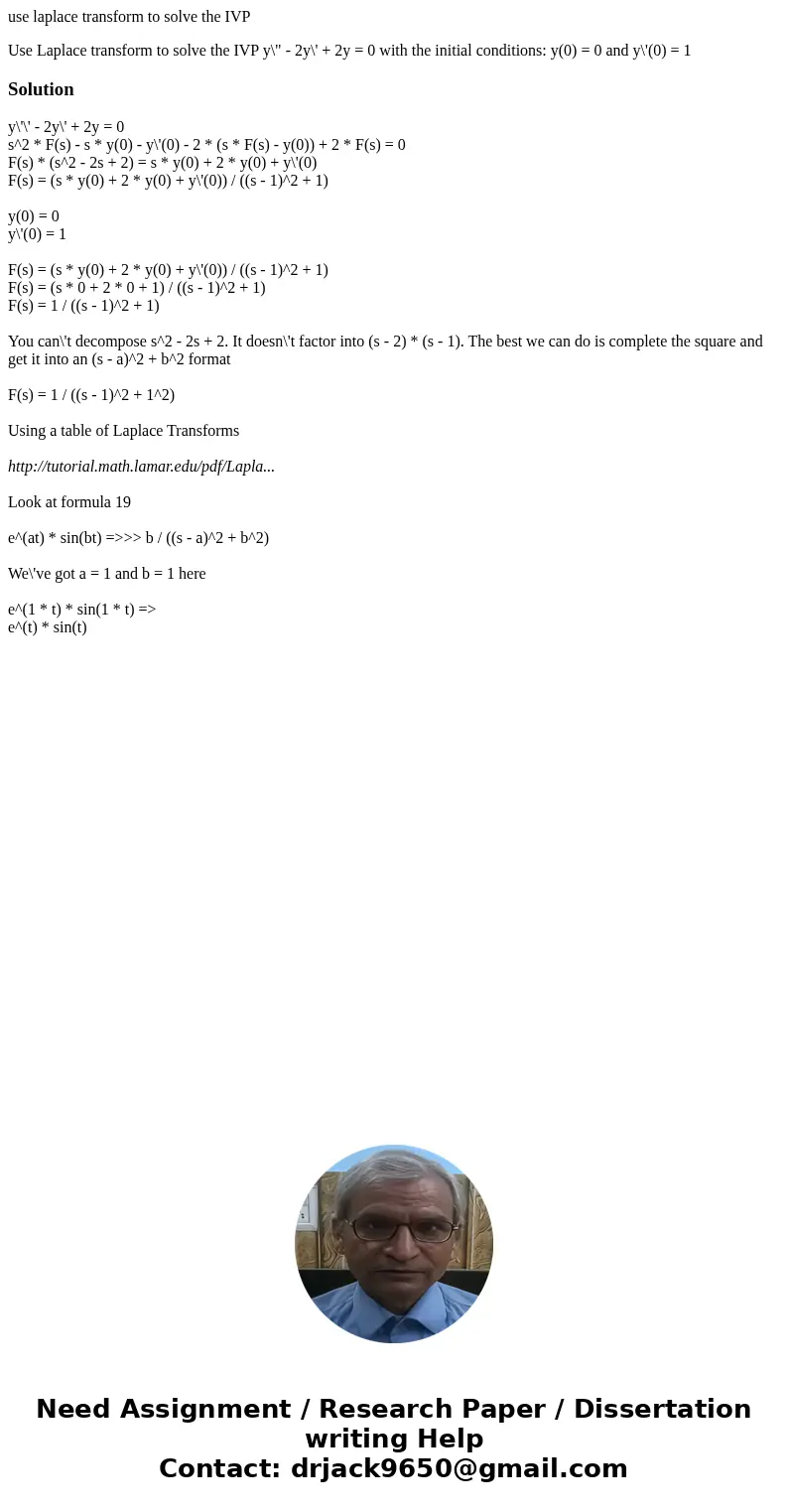use laplace transform to solve the IVP Use Laplace transform
use laplace transform to solve the IVP
Use Laplace transform to solve the IVP y\" - 2y\' + 2y = 0 with the initial conditions: y(0) = 0 and y\'(0) = 1Solution
y\'\' - 2y\' + 2y = 0
s^2 * F(s) - s * y(0) - y\'(0) - 2 * (s * F(s) - y(0)) + 2 * F(s) = 0
F(s) * (s^2 - 2s + 2) = s * y(0) + 2 * y(0) + y\'(0)
F(s) = (s * y(0) + 2 * y(0) + y\'(0)) / ((s - 1)^2 + 1)
y(0) = 0
y\'(0) = 1
F(s) = (s * y(0) + 2 * y(0) + y\'(0)) / ((s - 1)^2 + 1)
F(s) = (s * 0 + 2 * 0 + 1) / ((s - 1)^2 + 1)
F(s) = 1 / ((s - 1)^2 + 1)
You can\'t decompose s^2 - 2s + 2. It doesn\'t factor into (s - 2) * (s - 1). The best we can do is complete the square and get it into an (s - a)^2 + b^2 format
F(s) = 1 / ((s - 1)^2 + 1^2)
Using a table of Laplace Transforms
http://tutorial.math.lamar.edu/pdf/Lapla...
Look at formula 19
e^(at) * sin(bt) =>>> b / ((s - a)^2 + b^2)
We\'ve got a = 1 and b = 1 here
e^(1 * t) * sin(1 * t) =>
e^(t) * sin(t)

 Homework Sourse
Homework Sourse